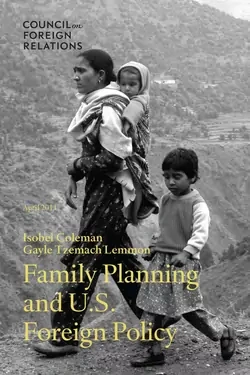
Family Planning and U.S. Foreign Policy
Ensuring U.S. Leadership for Healthy Families and Communities and Prosperous, Stable Societies

- Report
More on:
Overview
Women today are recognized as critical to reducing poverty, boosting economic growth and agricultural productivity, promoting environmental sustainability, and raising healthy and well-educated children—steps that are imperative to confronting myriad pressing foreign policy challenges around the globe. Investments in international voluntary family planning programs give women the tools to make important decisions about the size of their families and the spacing of their pregnancies, better enabling them to be linchpins of positive change in their communities. An increased prioritization of family planning has the additional benefit of strengthening U.S. foreign policy priorities as they relate to economic development, international security, and environmental sustainability.
Given its centrality to many pressing foreign policy issues and its demonstrated high return on investment, international family planning is an area of assistance that deserves greater priority. The report recommends that the United States expand its leadership role in creating healthy, resilient families in some of the most vulnerable parts of the world as a critical objective of U.S. foreign policy. While there are many important components of that vision, international family planning should be a main aspect. The U.S. government should prioritize family planning in U.S. foreign policy, increase U.S. funding for voluntary international family planning, increase access to family planning services, encourage support for women's health within countries receiving aid, and expand resources into countries with highest unmet need.
More on:
 Online Store
Online Store